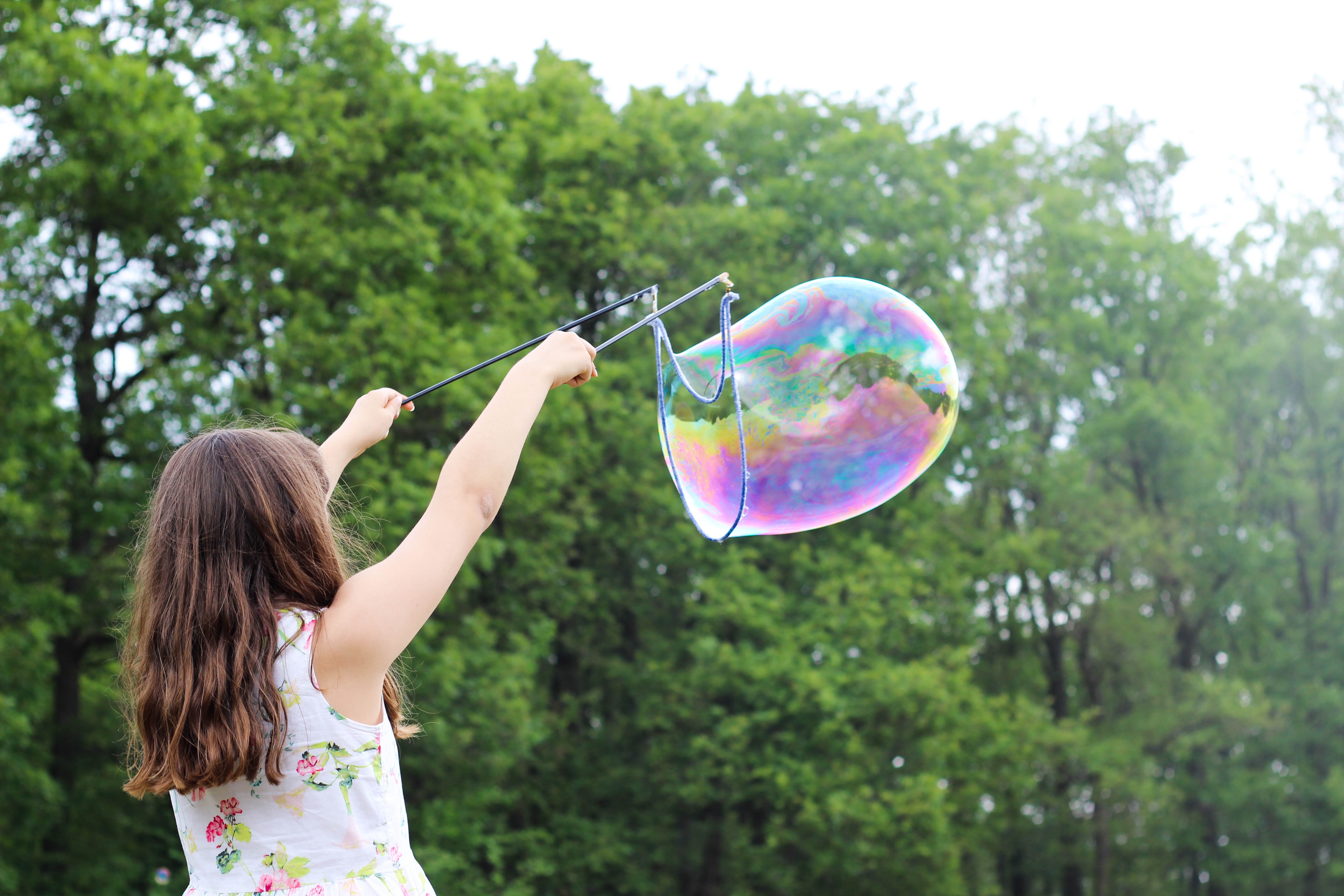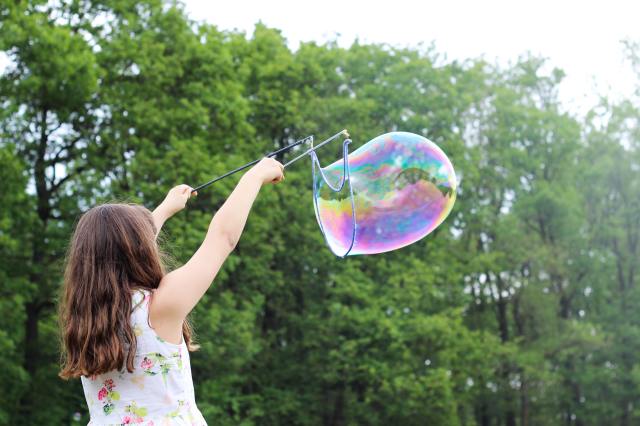
Homeschooling has become a hot topic as parents grapple with solutions to school closures during the pandemic. Some parents choose this path as a stop-gap measure until in-person school returns as an option, while others see homeschooling as a lasting alternative. Decisions about school can be nerve-wracking as we wonder how they’ll affect our children’s long-term future, so allow me to share some observations as an adult looking back on the experience of homeschooling from kindergarten through middle school.
Kids Practice Self-Reliance & Initiative
My newsfeed is full of memes complaining about “kids these days” and their lack of gumption, but one of the things I loved most about my homeschool experience was the amount of independent thought it allowed. Following a natural history interest, I turned our playhouse into a museum and curated the exhibits. Our 4-H chapter didn’t have a climatology project, so my mom helped me create one and we charted variables like atmospheric pressure. Pursuing our passions as adults can feel scary when we haven’t had practice with risks and failure, but encouraging kids to take the reins in their own learning sets them up for later success.
Kids Spend More Time outside
Depending on who you ask, kids should be spending between three to six hours of time outside every day, yet many states only mandate 20 to 30 minutes of recess or don’t require any at all. Homeschoolers aren’t tied to a rigid schedule dictated by bells and buzzers. Can’t focus on that tough math problem? Kick a ball around outside and regroup later. Avoiding crowds by taking a family hike on a weekday? Pack your reading along for the ride to the trail. Fostering genuine enjoyment of the outdoors in our kids helps their long-term physical health and makes them better stewards of our planet as adults with decision-making power.
Social Skills Aren’t Sacrificed
A major stereotype of homeschooled kids relates to their lack of social skills, but there are plenty of strategies to increase social interaction. For kids with special needs, homeschooling can provide smaller-scale social interactions with sympathetic participants. Our homeschool group met for weekly park days and pooled resources to hire drama, language, and public-speaking teachers.
Acting as Hermia in A Midsummer Night’s Dream capped months of hard teamwork and I still remember it today (and am thoroughly embarrassed by my cheesy acting in videos my parents have). Parents also coordinated field trips where kids learned to ask questions and engage with adults and peers. I feel I had a lot of opportunities to develop social skills. However, most of my interactions occurred with people who looked and thought like my family in one way or another.
Diversity Needs More Attention
One of the main criticisms I have of homeschool culture is the general lack of racial and cultural diversity. Most homeschooling parents at the time were White Protestants, typically with at least one college degree among them and the means for a parent to stay home and teach the kids. Our church had some Black families and other folks of color. However, my memories don’t include a lot of tolerance or acceptance of alternative viewpoints on social issues by the congregation. Similarly, the leaders of our homeschool group exerted significant social pressure to act according to their beliefs.
Current events and our country’s history indicate that public schools also have their fair share of racial segregation and mistrust of outside opinions. However, homeschooling requires concentrated effort and education on the part of parents to find opportunities to meet and befriend people who look and think differently from your family. If your homeschool community starts to look too homogenous, think about how you can drive change. This might look like reading books by authors from another community, following the blogs or social media accounts of homeschooling families who are different from yours, or re-examining the policies of a homeschool group you belong to if they might unintentionally exclude families of color. Big changes aren’t accomplished overnight, but by taking your children’s education into your own hands, you can help instill the importance of listening to and learning from people who aren’t just like you.
You Can Reevaluate Regularly
There’s no beating around the bush. Homeschooling is a significant investment of your time and mental resources and it might not be sustainable. It’s alright to have a good run and then change to what works best right now. As your kids age, allow them to have input in their schooling as well. My family started homeschooling in kindergarten but moved across the state just as I was about to start middle school. Creating a homeschool community takes time, and I felt nauseated by the idea of trying to re-create what I was losing, so my parents enrolled me in the local public school. The adjustment was a little challenging, compounded by all the hormone-driven awkwardness of the pre-teen years, but it was the right choice for me.
I look back with mostly fondness on my homeschooling years. My naturally creative mom was always up for a new art project or a field trip and I really benefited from that time with her. In an era when fathers weren’t always as involved with their kids’ education, my dad often sat with me to go over math problems and taught me more by asking questions than by always giving the answers. You might be wondering—would I homeschool my own kids? I probably wouldn’t. Patience is not one of my virtues and while it’s not a necessity when explaining long division, it certainly makes things easier. That said, my daughter is scheduled to start kindergarten next fall and with the uncertainty around the future driven by the pandemic, I’m grateful for my homeschooling experience as a back-up (and for my mom’s listening ear when I inevitably need advice).











